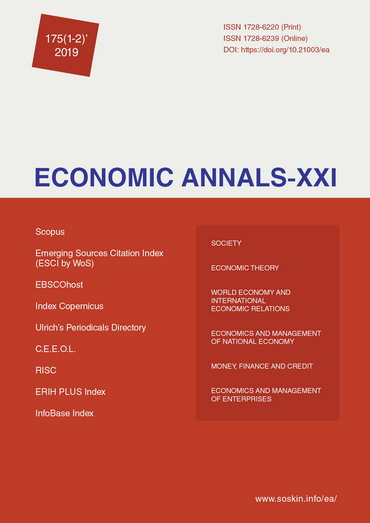Fiscal decentralization in Europe in the context of social protection development
Fiscal decentralization in Europe in the context of social protection development
Author(s): Iryna Storonyanska, Iryna Hrynchyshyn, Andrii Dub, Ioan HorgaSubject(s): Public Finances, Fiscal Politics / Budgeting
Published by: Institute of Society Transformation
Keywords: Fiscal Decentralization; Decentralization of Income; Decentralization of Expenditures; Municipal Budget; Social Protection;
Summary/Abstract: The authors analyze the European experience of fiscal decentralization in the context of the development of socialprotection. Based on the distribution of functional expenditures, countries that have prioritized organization and financial provisionof social protection at the local level have been identified. The authors share the view that the effectiveness of social protectionreforms is largely due to the interdependence of spending on social protection and the reduction of poverty in the country. Thecountries that use a relatively small share of GDP expenditure while having low poverty rates after social transfers are the CzechRepublic and Ireland, while such countries as Italy and Greece track high share of GDP expenditure as social transfers andhigh poverty rates. The countries that spend much less on social protection in terms of GDP and have high levels of povertyare Estonia, Bulgaria, Latvia, Romania and Lithuania. An analytical study of the decentralization of incomes made it possible tofind out the differences in the formation of municipal budgets through transferring powers and financial resources to the locallevel, as well as different approaches in determining sources of income and financial equalization. Some European countriesstill have high centralization of social protection expenditures, such as Bulgaria, Spain, Estonia, the Czech Republic, Portugal,Slovakia, Italy, Croatia, Cyprus, Malta, where the share of expenditures on social protection is less than 10% of the local levelexpenditures. At the same time, in Denmark, the UK, Germany, Ireland, Norway, Sweden, the Netherlands, Iceland, Austria,Poland, and Belgium the share of social protection expenditures in structure of the local level expenditures is more than 20%.The importance of the municipal level in financing social protection expenditures has been established, which confirms theassignation of the majority of financial resources to support the elderly, families with children and social inclusion.
Journal: Економічний часопис - ХХІ
- Issue Year: 175/2019
- Issue No: 01+02
- Page Range: 24-28
- Page Count: 5
- Language: English

